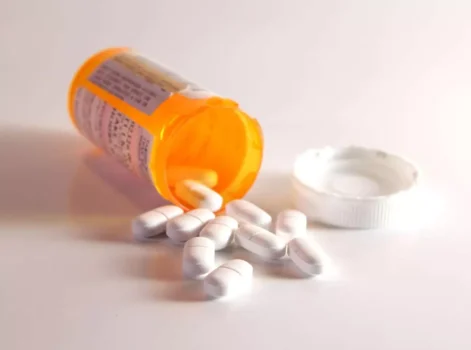
As a community based treatment center, it’s important to us that we share helpful resources and expert content created for those who are seeking treatment or already in recovery. Metabolizing alcohol is a complex process and most ranges are “averages” rather than how long it will specifically take you to metabolize that alcohol. Just like a broken bone or infection needs time to heal, so does an overworked liver. While this depends on the amount of alcohol you have had over the years, your liver can see partial healing within two to three weeks, but this will depend on your health history. “For patients who are left with cirrhosis after severe injury to the liver from alcohol, even one drink of alcohol is toxic to the liver,” cautions Dr. Lindenmeyer. Another thing that will help your liver’s journey in recovery is good nutrition.
Sunshine Behavioral Health Facilities
- When your body is working to flush alcohol out of your system, certain foods can hinder this process.
- If someone with alcohol problems also battles depression, their symptoms may worsen when drinking.
- Some people experience a severe form of alcohol withdrawal known as DTs.
- Head to our Just Curious section to see what else we can answer for you.
- Someone may test negative for drinking alcohol when they have had alcohol recently.
Because the body usually works to maintain balance, it will signal the brain to make more neurotransmitter receptors that excite or stimulate the central nervous system. Rest allows your body to heal and recover faster, helping you feel better sooner. Nevertheless, while exercise will not help to sober a person up, they may become more aware after doing some exercise. A cold shower may make a person alert for a short period, but they are still impaired. Your liver breaks down the alcohol and turns it into the highly toxic and reactive chemical acetaldehyde.
The stomach’s role
- You can also help your body metabolize alcohol by avoiding highly processed foods and drinks like chips, white bread, and soda.
- The liver gets most of the attention when it comes to alcohol metabolism.
- As a central nervous system depressant, alcohol impairs the communication of messages in your brain, altering your perceptions, emotions, movement, and senses.
- Factors like weight, age, gender, and overall health can affect this rate.
Your liver processes alcohol at the rate of one drink per hour, according to the National Institute on Alcohol Abuse and Alcoholism (NIAAA). That means it can take three to seven hours for your body to metabolise and eliminate one to four drinks, depending on several factors. If you’re trying to quit drinking, how to flush alcohol out of your system in 24 hours detoxing from alcohol will normally take 1-2 weeks. On the other hand, if you’re trying to quickly get alcohol out of your system for a drug and alcohol test or for a court ordered alcohol test, you’re out of luck. There’s nothing you can do to speed up how quickly alcohol leaves your system.

Drink Lots of Water
Women tend to have higher BAC than men since they have less alcohol dehydrogenase (ADH). ADH is an enzyme that breaks down alcohol in the liver and the stomach. Men typically need to consume twice as much alcohol to reach the same level of intoxication as women. The approximate blood alcohol content (BAC) of an average person of 150-pounds who consumes a standard drink will be between 0.02 and 0.03.


While the body works on metabolising alcohol, it suffers from dehydration. You must increase your water intake after drinking too much alcohol to rehydrate. A hangover is a term that designates a set of undesirable effects that occur when you drink too much. So, tests can vary in sensitivity, but all of them rely on your body having ethanol or ethyl alcohol in the system.
Factors that Affect BAC

A small percentage of people going through alcohol withdrawal have hallucinations at this point. You can still pursue therapy and support groups as you go through withdrawal. A half-life is how long it takes for your body to get rid of half of it. But you need about five half-lives to get rid of alcohol completely.
No matter your situation, Dr. Schnoll-Sussbaum also stresses that there’s zero shame in bringing up poop with your doctor; they are professionals and deal with this shit on the regular (literally). Plus, offbeat poops can, again, hold key intel about your health—and nothing should keep you or your doctor from accessing that. The biggest things to consider are how long you’ve been noticing the floaters and whether they’re happening alongside some other more concerning symptoms. Read on to learn whether poop should float or sink, what each scenario can reveal about the functioning of your GI system, and when unusual poops warrant a call to your doctor. USA TODAY is exploring the questions you and others ask every day.
- For resources related to AUD, including how to get support, please visit the NIH website.
- If you make the decision to stop drinking daily and heavily, you will likely experience withdrawal symptoms.
- Individuals with more body fat generally have a higher BAC because low-water fatty tissue cannot absorb alcohol as well as high-water muscle tissue can.
- If you take a breath or saliva test shortly after using alcohol-containing mouthwash or cough medicine, it may detect the residue of the alcohol in your mouth and create a false positive as well.
- However, your body is well-equipped to eliminate these harmful substances without dietary intervention or supplementation.
- If you find it challenging to control your drinking or if it’s causing significant problems in your life, it might be time to seek professional advice.
When to see a doctor about floating poops
- A cold shower may make a person alert for a short period, but they are still impaired.
- In addition to its many roles in your body, water allows your body’s detoxification system to remove waste products from your blood.
- There’s nothing you can do to speed up how quickly alcohol leaves your system.







